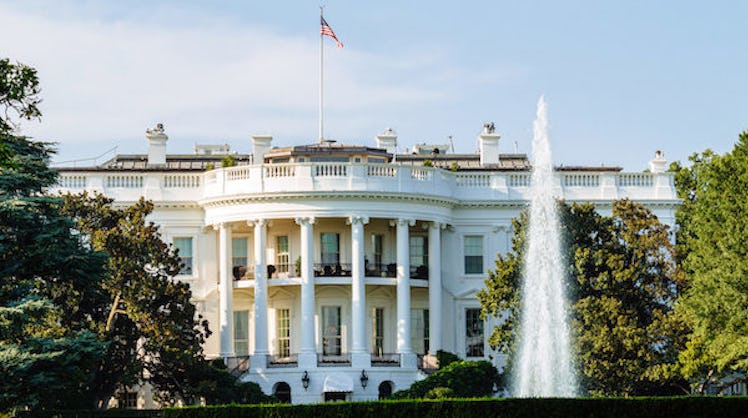
3 Simple Ways To Improve Voter Turnout And Democracy In America
In a recent speech about the importance of voting rights, former Secretary of State and Democratic presidential candidate Hillary Clinton expressed dismay against measures across the country that limited voting hours and access to the ballot box:
“All of these problems voting just didn’t happen by accident. And it is just wrong — it’s wrong — to try to prevent, undermine and inhibit Americans’ right to vote.”
Sen. Bernie Sanders (I-VT) has also suggested that the process of debates for presidential candidates needs reforming:
“I believe we should be open to a less traditional form of debating by welcoming the opportunity to debate not only amongst members of the Democratic Party but also having debates between Democratic and Republican candidates during the primary process.”
Clinton’s speech on voting and Sanders’s words on debates are fresh reminders the democratic process needs constant change and protection over time.
Yet, ideas from both Clinton and Sanders don’t go far enough. They’re good starts, but we need voting reform if we hope to strengthen our representative democracy in the 21st century:
1. Register all voters, one way or another.
Registration of voters is a tedious task that can make any candidate for office’s head roll. It’s hard enough to get voters to the polls, but it’s even harder to get citizens to register to vote in the first place.
Some states have same-day voter registration, but most require advance registration. In many states across the country, you must register a whole month before the actual election, and if you fail to do so, you don’t get to vote at all.
Some people want to change how registration takes place. One option is online voter registration, which allows people the ability to register from the comfort of their own living rooms rather than making a trip to a municipal building.
Twenty states have implemented online voter registration, and it appears to be a trend that’s catching on. Is it helpful?
The answer is a resounding yes. Not only have participants reported an easier registration process, but voter rolls have increased their accuracy. States have also saved money by implementing a paperless process.
Hillary Clinton has proposed another common sense solution: make voter registration automatic.
Rather than depend on people to register themselves, the nation would implement a system where, as soon as you turn 18, you’d automatically be registered in your home state. If you didn’t want to be registered, you could opt-out and simply not vote.
It’s a similar plan to what the state of Oregon has implemented, where every citizen in the state with a driver’s license over the age of 18 has also been registered to vote.
2. Campaign finance reform: limit corporatist “speech.”
Ever feel as though your voice doesn’t matter in the election process? You might be on to something.
A joint study by Princeton and Northwestern Universities demonstrated that the opinions of constituents within the bottom 90 percent of income earners rarely had any influence on the politicians they sent to Washington. For the wealthiest 10 percent, however, influence seemed to be greater.
Because of a Supreme Court case in 2010 nicknamed "Citizens United," corporations can donate unlimited sums of money towards political causes (though not directly to political campaigns, yet). The effects have been drastic: In 2012, election spending topped $1 billion.
A Constitutional amendment has been suggested that would allow Congress the right to limit corporate “speech” when it comes to financial donations. This would allow spending to remain in the hands of actual people and not corporations.
3. Put the right to vote down in writing.
Guess what? You don’t actually have a right to vote.
Crazy, right?
In voting for president, for instance, the Constitution doesn’t explicitly say states have to allocate their Electoral College votes based on voting preferences of the people. States can base who they pick for president off any process they want (e.g. a law could pass in your home state that says the governor could choose.)
Laws also could pass that would limit the right to vote based on strange parameters. For example, law could require everyone to obtain a license to vote with strict standards for obtaining a license, and that would be allowed under the current laws of the Constitution.
An amendment has been proposed by Reps. Mark Pocan (D-WI) and Keith Ellison (D-MN) that would change that. The amendment states, “Every citizen of the United States, who is of legal voting age, shall have the fundamental right to vote in any public election held in the jurisdiction in which the citizen resides.”
We need the other reforms mentioned above to take shape in some way or another. As the world changes, democracy must evolve with it. Tradition alone shouldn’t dictate the laws for how we select our leaders, and archaic systems for choosing them should be changed or replaced when necessary.
Citizens should be in charge of the direction their country heads, and we need to ensure that remains the case as we move into the next century.